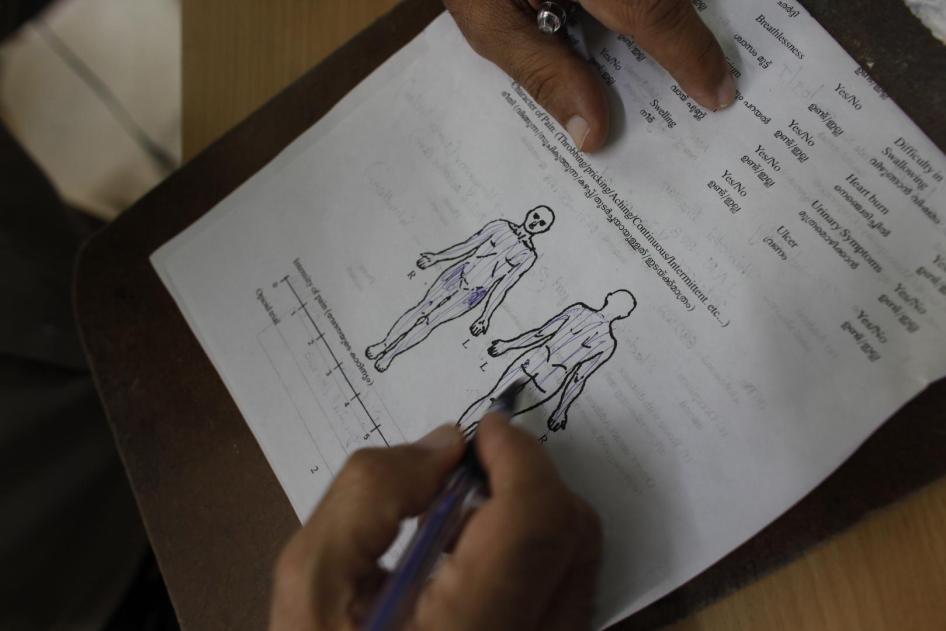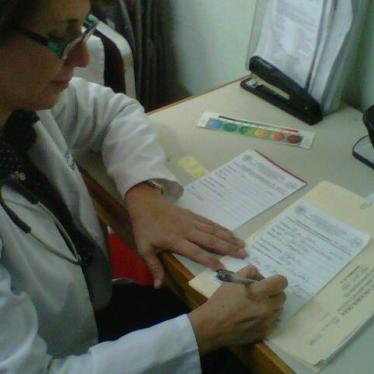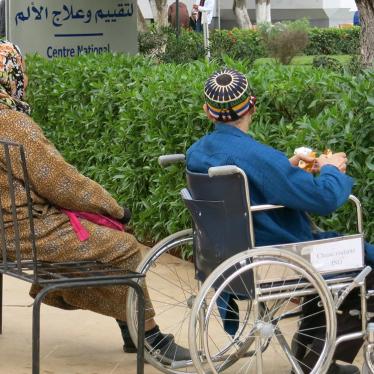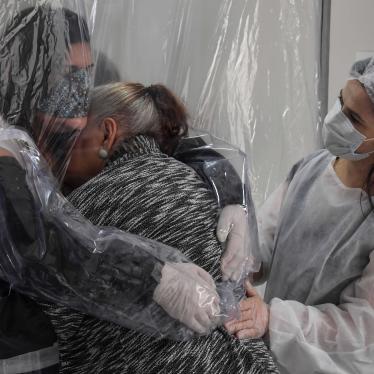Poor people around the world live and die with little or no pain relief or palliative care, a report published today in the medical journal, Lancet, said, calling the fact a “medical, public health, and moral failing and a travesty of justice.”
The report, prepared by global health and palliative care experts, of which I, in my capacity as Human Rights Watch’s health director, was one, found that more than 61 million people worldwide experienced severe pain, fatigue, nausea, vomiting, and other symptoms common to illnesses like advanced cancer, diabetes, and heart disease.
The global health community has largely ignored this, the report said. It blames the fact that people’s health progress is measured in extra years of life or productivity, with insufficient weight given to dignity. Also, the medical establishment’s focus on curing diseases has led to a minimizing focus on caregiving and people’s quality of life near death.
The absence of morphine, essential in palliative and end-of-life care, in many low and middle-income countries is “emblematic of the most extreme inequity in the world,” the report states. With 298.5 metric tons of morphine and similar medications distributed worldwide each year, only 0.1 metric ton goes to low income countries. Yet a basic palliative care package, which includes key medications and personal care, is not expensive, costing about US$2.40 per capita per year in low income countries and US$0.75 in lower-middle income countries.
Addressing morphine access is even less costly. In upper middle-income countries, which include China and Russia and represent 52 percent of global unmet need for the medication, the cost could represent significantly less than 0.01 percent of those countries’ total health expenditures.
The report calls for new methods to measure health progress that include suffering, and for the inclusion of palliative care as part of the universal health insurance governments offer their citizens. It also calls the establishment of a clear accountability process to measure progress toward closing the pain relief gap.
The report’s conclusions echo Human Rights Watch’s research on lack of pain treatment in countries like Armenia, Guatemala, India, Mexico, Morocco, and Senegal. Patients we interviewed described their suffering in similar terms as victims of torture, saying that the pain was unbearable and that they would do anything to make it stop. Many saw death as their only way out.
As the report says, the global health community has “the responsibility and the opportunity” to alleviate people’s end-of-life suffering. It should do so.
For more Human Rights Watch Reporting on palliative care, please visit:
https://www.hrw.org/topic/health/palliative-care
|
Dispatches
Report in Lancet Calls for Needed Pain Relief
More than 61 Million Globally Suffer Severe Pain from Advanced Illnesses
Your tax deductible gift can help stop human rights violations and save lives around the world.
Region / Country
Topic
Most Viewed
-
April 25, 2024
Burkina Faso: Army Massacres 223 Villagers

-
April 24, 2024
EU Parliament Approves Supply Chain Law

-
November 25, 2019
A Dirty Investment

-
April 24, 2024
Iran: Popular Rapper Sentenced to Death for Dissent

-
June 24, 2022
Q&A: Access to Abortion is a Human Right





